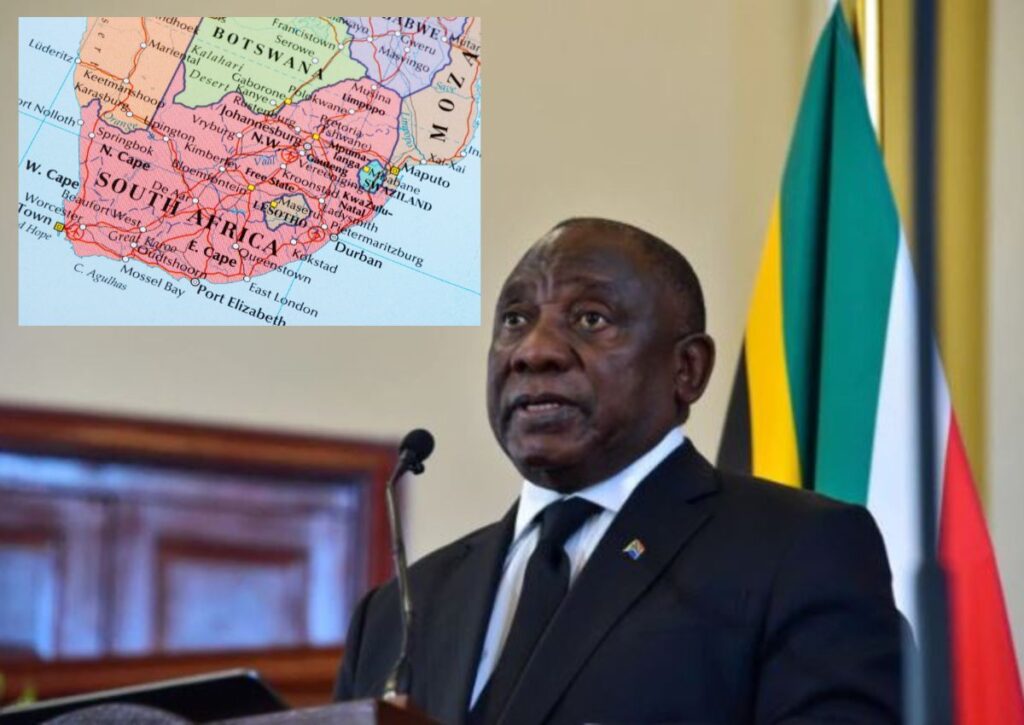South Africa has been placed on a global financial watchdog’s grey list denoting nations with shortcomings in tackling illicit financial flows, which scars their international reputations and may raise costs for banks and asset managers.
SOUTH AFRICA HAS BEEN GREYLISTED – IT WAS ANNOUNCED ON FRIDAY
The Financial Action Task Force announced the decisions on Friday.
ALSO READ: ANC threatens to sue De Ruyter if he has not laid criminal charges in next week
South Africa and Nigeria were featured under the “high-risk and other monitored jurisdictions” section.
“Jurisdictions under increased monitoring are actively working with the FATF to address the strategic deficiencies in their regimes to counter money laundering, terrorist financing, and proliferation financing,” the watchdog noted.
“When the FATF places a jurisdiction under increased monitoring, it means the country has committed to resolving swiftly the identified strategic deficiencies within agreed timeframes,”
it added.
WHAT IS THE FINANCIAL ACTION TASK FORCE, AND WHAT ROLE DOES IT PLAY?
The FATF is a global inter-governmental body that promotes policies and sets international standards relating to the combating of money laundering, terrorist financing, and the financing of the proliferation of weapons of mass destruction.
ALSO READ: Eskom CEO André de Ruyter POISONED the day after his resignation
So what does this, in short, mean?
In summary, the greylisting of a country means that its government has adopted an action plan to address deficiencies identified during its mutual evaluation after an observation period and to implement such an action plan within a defined time period and with FATF monitoring such implementation.
WHY HAS SOUTH AFRICA BEEN GREYLISTED?
South Africa did poorly in its 2021 mutual evaluation, which was conducted in 2019 when many institutions (especially law-enforcement agencies) were at their weakest following state capture.
While no country is fully compliant with all 40 FATF Recommendations and all 11 effective immediate outcomes, South Africa was deemed to have too many weaknesses in its legal framework (being deemed to be inadequately compliant with 20 of FATF’s recommendations) in all 11 effective immediate outcomes.
South Africa was put under a one-year observation period in October 2021, giving the country time to address 67 Recommended Actions. South Africa made significant progress during the observation period, passing two major Amendment Acts in 2022 and strengthening its institutions.
ALSO READ: WhatsApp no longer work on these smartphones – Here is the full list
A January 2023 assessment of SA’s progress found that South Africa had made significant and positive progress, reducing the 67 Recommended Actions to 8 strategic deficiencies, where more progress is required.
As a result, South Africa was greylisted while these were addressed, even as the FATF recognised the significant and positive progress made since 2019.
WHAT ARE THE IMPLICATIONS FOR A COUNTRY THAT IS GREYLISTED?
The most significant implication to a country that is greylisted is the reputational damage to the country, as its effectiveness in combatting financial crimes like corruption and money laundering, as well as terror financing, are deemed to be below international standards.
The second and related implication arises from consequential action taken with regard to cross-border transactions, particularly possible action taken by foreign banks that provide correspondent banking services.
It should be noted that FATF does not require enhanced due diligence measures to be applied, but rather that all jurisdictions take account of it in their risk analysis.
ALSO READ: LOOK: At least 17 sevengill sharks KILLED by pair of killer whales

